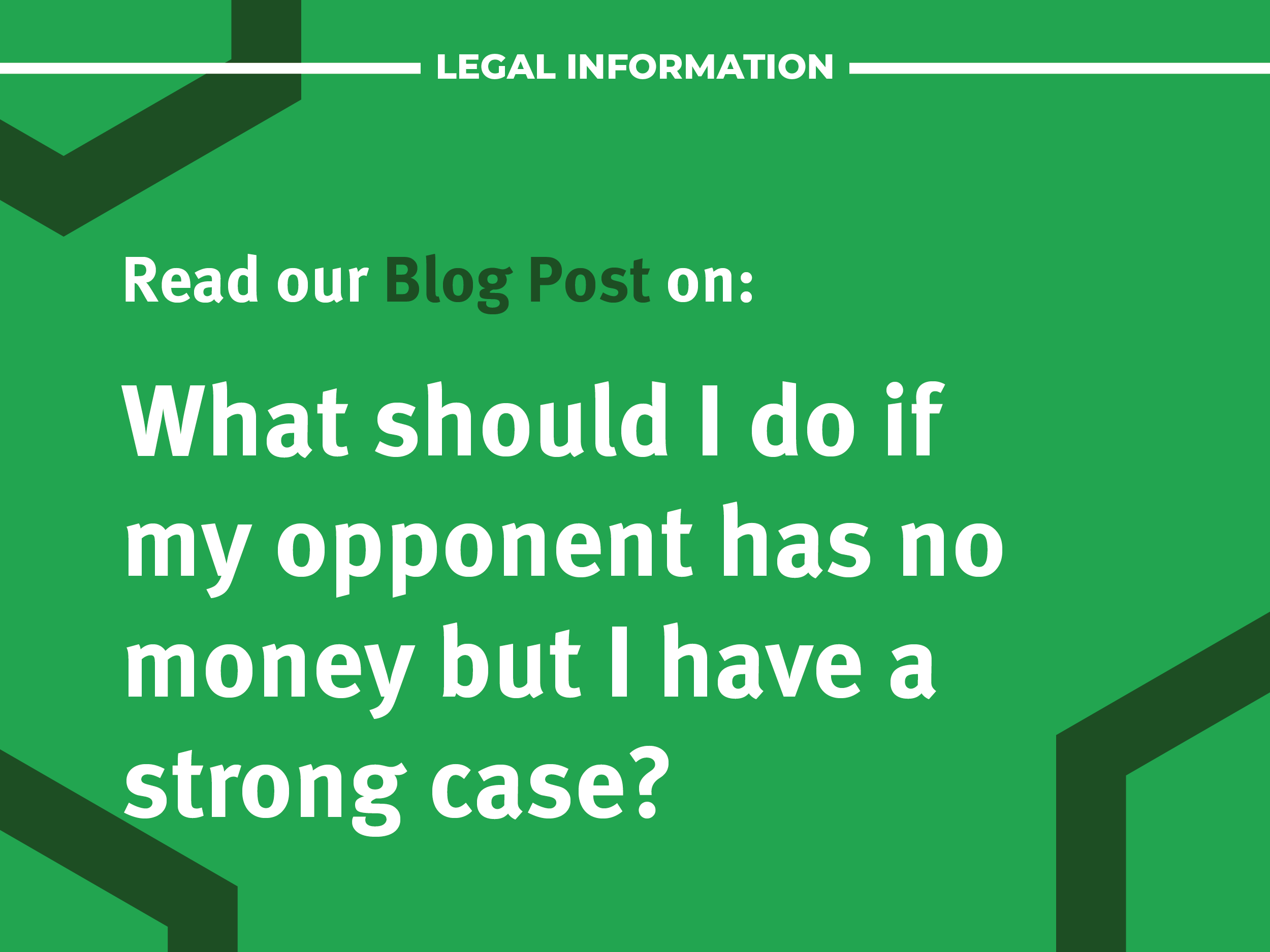
When considering litigation one of the first things we consider is your opponent’s financial sustainability. Before filing a case, most claimants would want some assurance that they will be able to recoup at least some of their losses and legal costs. So, what can we do to determine whether your adversary will be able to satisfy any judgement rendered against them?
What do you know before taking action?
The first thing we do is start a conversation about the potential case with you. You will almost always have some sort of relationship with your opponent. This could be a personal relationship or a long-term business tie between two companies. You will almost undoubtedly have useful information regarding any recent changes in the opponent’s situation and cash flow. The context for this examination will be provided by the dispute’s history. To illustrate, has the opponent expressed dissatisfaction with, say, the quality of goods given, or has the opponent simply gone silent and ceased paying invoices? While the former may indicate a legitimately held grievance that must be handled, the latter may signal cash flow and liquidity concerns. Documents publicly available from Companies House will frequently reveal a plethora of information in the case of a debtor corporation. What isn’t there is sometimes just as significant as what is. A notification that statutory accounts are past due is a red signal, and patterns can often be seen growing over time, allowing us to examine whether this suggests financial difficulty. A significant recent turnover in Director appointments could indicate a recent change in the company’s fortunes. It is also feasible to determine (with reasonable certainty) whether the opponent, whether an individual or a corporation, owns any property in Scotland. We also check the public registers to ensure that the opponent has not been declared bankrupt.
Instructing a Tracing Agent
If there is still some doubt after these discussions and checks, another option is to hire tracing agents to conduct inquiries. This is a low-cost yet frequently very beneficial step. The tracking agents will do some “desktop” investigations, such as searching for information on the altered Voters Roll. They will also investigate whether the debtor has any outstanding court judgements against them and do searches to determine whether or not they are employed. Crucially, tracing agents will usually physically visit the opponent’s address to gather any information they can. This could entail inspecting their home/premises and doing covert inquiries to learn about the opponent’s circumstances. The tracing agents will provide their thoughts on the chances of recovery.
What do I do and should I get legal advice from a solicitor?
If you are concerned that your possible opponent lacks financial resources, get immediate legal assistance and consult with one of our specialists. Before taking legal action we will walk you through the choices for determining whether or not your opponent has assets, as well as the risks and rewards of pursuing legal action, all with the goal of arriving at a strategy that you are comfortable with and will produce a positive outcome.
